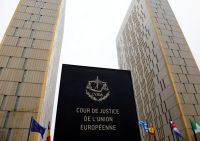
Comité Champagne then appealed such decision before the Court of Appeal of Barcelona.
The Court submitted the following referrals to the CJEU, which concern the extent and limits of the protection conferred to PDO in the EU legislation:
- If the scope of protection of a designation of origin allows for its protection, not simply in relation to similar products, but also regarding services that might be linked to the distribution of these products.
- If the risk of infringement by evocation requires a nominal analysis, in order to define its impact upon the average consumer, or if, it must be previously determined that the products in question are either the same, similar or complex products having, among their components, a product protected by a designation of origin.
- If the risk of infringement by evocation shall be defined on the basis of objective parameters in case of an either total or very high coincidence between the signs, or if it shall be assessed according to the products and services evoking and evoked in order to conclude whether such a risk is minor or irrelevant.
- If the protection provided by Article 103 of EU Regulation 1308/2013 against evocation or exploitation is a protection, specific to those products’ peculiarities, or if the protection shall necessarily be linked to unfair competition law.
Following a consolidated case law by the CJEU, this case is an opportunity to further define the concept of evocation in the EU. In particular:
- With respect to question 1, we believe the Court should answer in the affirmative. In fact, Article 103 of EU Regulation n°1308/2013, paragraph 2), a), ii) and (b) refer to any direct or indirect commercial use of a registered PDO as long as such use takes advantage of the reputation of the PDO and any evocation of the PDO. The same Article – paragraph 2) (a) (ii) – unlike previous paragraph 2) (a) (i) – does not limit its extent to products and services but it has a rather more general scope. It is a question of “protecting the designations of origin and geographical indications against any use aiming to take advantage of the reputation associated with products which comply with the relevant specifications” under recital 97 of the Regulation.
- With respect to question 2, to determine the existence of an evocation, we believe that the analysis of the name at issue shall be undertaken taking into account the strength of the PDO reputation
- As to the third question, the court asks a very similar question to the previous one, with the purpose to examine more in depth the importance of the degree of proximity between the name at issue and the PDO. In the present case, the designation ‘Champagne’ is almost entirely included in the name “Champanillo”. In this regard, “according to settled case-law, the concept of evocation covers, inter alia, a situation where the term used to designate a product incorporates part of a protected designation, so that when the consumer is confronted with the name of the product, the image triggered in his mind is that of the product whose designation is protected.” (C-393/16 CIVC v ALDI – GALANA NV, 20/12/2017, paragraph 58; as well as C-75/15, Viiniverla, 21/01/2016, paragraph 21).